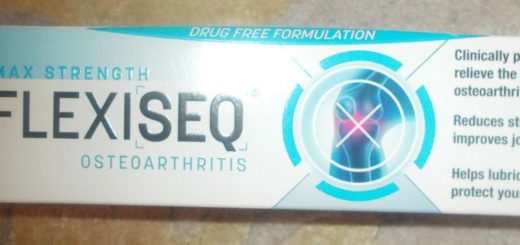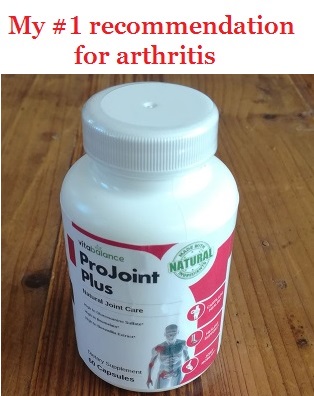Top 4 Krill Oil Benefits For Arthritis (+ 4 Downsides)

Have you ever heard of Krill oil? If the answer is not – you should definitely check it out.
It seems to be the new alternative to fish oil:
- contains similar ingredients
- needs a lower dose for the same effect
However, is it any better than fish oil – in terms of joint pain? I did a long research and here what I found out:
- there are 4 major Krill oil benefits for arthritis
- I also found 4 big downsides
So here’s all you need to know about Krill oil & arthritis – but first, let’s see what’s so special inside it.
What Krill Oil Contains
The already-famous Krill oil is extracted from Euphausia superba – a species of Antarctic krill.

Basically – it contains 2 main substances:
- Omega 3 Fatty Acids
- Phosphatidylcholine
The fatty acids are similar to the ones from fish oil.
However, the phosphatidylcholine is something you can’t find in fish oil:
- it’s also called “marine lecitine”
- it’s a phospholipid-derived fatty acid (PFLA)
Now – I will not enter any particulars here, since it’s not very relevant. But these 2 substances are the major compounds of Krill oil.
So it’s them that are responsible for how it works.
Now that you know what it contains – it’s time to find out the benefits and downsides of using Krill oil for arthritis.
Benefit #1 – Decreases Inflammation
Here’s how it can help your swollen joints:
- contains a high quantity of Omega 3 Fatty Acids
- they have anti-inflammatory functions
Now – Krill oil doesn’t contain regular Omega 3 Acids.
According to a 2011 study – they seem to be more effective than those extracted from fish and marine species:
- 1000 mg of Krill oil works better than 2000 mg of fish oil
- People taking Krill oil had a lower level of inflammation
- The ones taking fish oil used a purified extract (which is even more powerful than regular fish oil)
Now – there aren’t a lot of studies on Krill oil at this point.
But the results we have look really promising.
That’s why Krill oil could probably replace fish oil in arthritis products at one point.
Benefit #2 – Reduces Arthritis Pain
Since it can decrease inflammation – Krill oil can also relieve the consequent pain.
In fact, the studies conducted on it also had positive results at this chapter:
- Krill oil can reduce the pain associated with arthritis
- it can also decrease swollen joints
- obviously, it also reduces arthritis flare-ups
In arthritis, pain is just a consequence of inflammation. So if inflammation decreases – so does the pain.

Benefit #3 – Fights Oxidative Stress
Besides its anti-inflammatory proprieties – Krill oil is also an antioxidant:
- Protects against free radicals
- Fights oxidative stress
- Prevents joint and cartilage damage
- Protects the joints against external factors and aging
Now – there are 2 substances from Krill oil responsible for this effect:
- Omega 3 Fatty Acids
- Astaxanthin
I’ve said enough about Omega 3 Acids – but what is astaxanthin?
Well – it’s a pigment with antioxidant proprieties. You can find it mostly in fish, marine and Krill oil.
Even though it’s not in a very high quantity – astaxanthin is surely the strongest antioxidant inside Krill oil.
Benefit #4 – More Omega 3s
To be honest – both Krill and fish oily contain Omega 3 Fatty Acids. Plus – their quantities are similar.
However, it seems that Krill oil is a much better source of these fats.
How’s that? Let me explain:
- Omega 3s from fish oil are stored as triglycerides.
- The ones from Krill oil can be found as phospholipids.
- Generally – phospholipids are way easier to absorb by our bodies.
- That’s because they get directly into the bloodstream.

In this way, Krill oil can immediately raise up the level of Omega 3 Acids from your body.
On the other hand – it takes a longer time if you use fish oil.
So from this point of view, Krill oil has a real benefit for arthritis – since these oils decrease pain and inflammation.
Downside #1 – Only Inflammatory Pain
As I said – Krill oil works pretty well for inflammation. But arthritis isn’t always caused by inflammation.
So what if your have cartilage problems or osteoarthritis? In this case – there’s little to no inflammation.
To be honest, Krill oil couldn’t help much in these situations.
So here’s when I recommend it:
- You have rheumatoid or psoriatic arthritis
- There’s a chronic inflammation in your body
- You have swollen joints
In other situations – it’s probably not going to do much.
So if you’re considering Krill oil, keep this in mind: It only works for inflammatory pain.
For any other kind of pain – it’s not going to help a lot.
Downside #2 – Pretty Weak Alone
Now – Krill oil has a lot of benefits on paper. But in reality, it’s not a miraculous solution.
Besides – it doesn’t work amazing if you use it alone. At least in my case, it never did.
I used a Krill oil supplement pretty recently – and I wasn’t too impressed:
- it decreased some of my inflammation
- the pain didn’t get a lot better
- it didn’t improve my flexibility
So my conclusion on that supplement was that it’s great for general health, but weak for joint pain.
For this reason – don’t use Krill oil alone for your arthritis.
Despite its benefits, it’s a lot weaker than supplements that are designed for arthritis or joint pain.

Downside #3 – Usually Expensive
Truth is – you can’t find Krill oil products so easily. Compared to fish oil – there are much fewer supplements on the market.
I did a research myself, so I can tell:
- there are around 20 brands selling it
- fish oil is available from over 100 different brands
For this reason – Krill oil supplements are pretty pricey:
- most cost around $30-$40 per monthly supply
- you can’t find too many under $20
- there are also a few over $60
Now – I’m not arguing about its benefits. But as an arthritis supplement – it’s surely not worth paying so much.
It’s not going to work too well alone – so you would have to spend at least an extra $15 for another product.
Downside #4 – Not Always Effective
Just like any other natural remedy – Krill oil may not work for everyone:
- you have a severe form of arthritis
- your cartilages are damaged or torn up
- you have a major inflammation
- your have arthritis flareups pretty often
In those situations, Krill oil may not even help at all. As I said – it’s a pretty weak remedy for arthritis, from what I’ve seen.
It does work – but it takes a couple of weeks until you start seeing any small effect.
And in my opinion, that’s a bit too much.
So keep this in mind before you try Krill oil – it might be effective, but it might also not work for you.
My Verdict – Is Krill Oil Good For Arthritis?
Short answer: Pretty much – but not alone. It’s has several benefits for arthritis, on paper:
- helps pain and inflammation
- promising results in clinical trials
- antioxidant proprieties
- better Omega 3s than in fish oil
However, Krill oil isn’t really my top recommendation for arthritis. At least not at this point:
- Only improves inflammatory pain
- Pretty expensive – compared to other supplements
- Not very strong
- Doesn’t work amazing alone
So overall – Krill oil has some real benefits for joint pain. But at this point, it’s still studied a lot.
That’s why you can’t find hundreds of brands selling it – which makes it pretty expensive.
For this reason, I don’t think it’s worth buying for arthritis.
You can buy a supplement that works much better alone for about the same money. So that’s what I would do instead.




